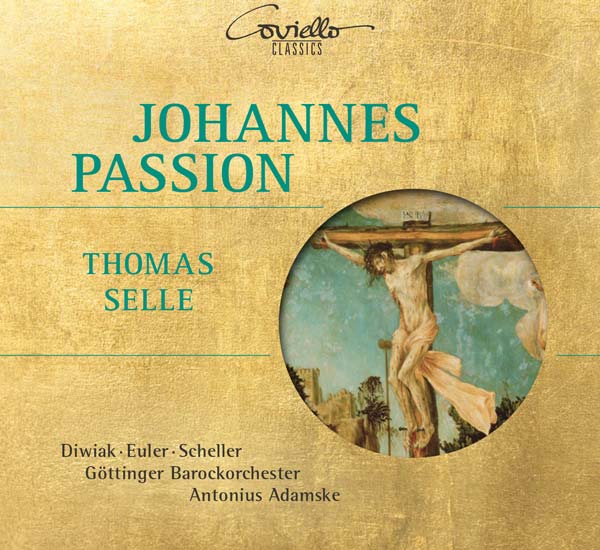
Thomas Selle:
Dantes Diwiak ⋅ tenor
Edition: Authentic Performance
Booklet: de / en
Media: CD / HD Download
COV 92304
VOKALSOLIST:INNEN · GÖTTINGER BAROCKCHOR
Kerstin Dietl Ancilla · cantus
Bogna Bernagiewicz · cantus
Johannes Euler Pilatus · altus
Luca Segger Servus · altus
Dantes Diwiak Evangelist · tenor
Markus Brutscher Petrus · tenor
Steffen Schulte · bassus
Janno Scheller Jesus · bassus
GÖTTINGER BAROCKORCHESTER
Hans-Henning Vater · violin
Christiane Gagelmann · violin
Martin Bolterauer · cornet
Lilli Pätzold · cornet
Rhoda Patrick · dulcian
Andreas Neuhaus · trombone
Christian Windhorst · regal
Christof Pannes · organ
Thorsten Bleich · lute, bandura
Konstanze Waidosch · viol
Alma Stolte · viol
Juan Díaz · violone
Antonius Adamske · harpsichord, direction
The proud Hanseatic city of Hamburg enjoys a special status in northern Germany – and that was already the case 400 years ago. Maritime trade made it prosperous even back then, and through skillful diplomacy and a gigantic defensive wall, the city was almost entirely spared the ravages of the 30 Years’ War, while much of the rest of Europe sank into rubble. The office of Hamburg’s city cantor was thus one of the most attractive positions that northern Germany had to offer at that time.
Thomas Selle held this position from 1641 and repaid his new home with outstanding compositions such as the St. John Passion from 1643, which is especially notable for the extraordinary colorfulness of the instrumentation. The Göttingen Baroque Orchestra, conducted by Antonius Adamske, brings it out brilliantly, providing the perfect support for the illustrious soloists.
| THOMAS SELLE (1599 – 1663) | ||
| 1. | Die Erd ist des Herren, D 1.48 | 6:44 |
| St. John Passion version with intermedia (1643) | ||
| 2. | Prima Pars | 4:45 |
| 3. | Intermedio · Fürwahr, er trug unser Krankheit | 4:44 |
| 4. | Secunda Pars | 6:09 |
| 5. | Intermedio · Mein Gott, warum hast du mich verlassen? | 8:14 |
| 6. | Tertia Pars | 6:11 |
| 7. | Intermedio · O Lamm Gottes unschuldig | 8:27 |
| 8. | Lobet den Herren, D 1.47 | 6:29 |
| Total time: | 51:49 | |
